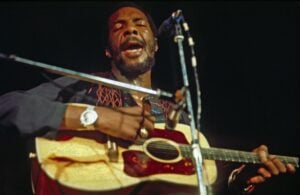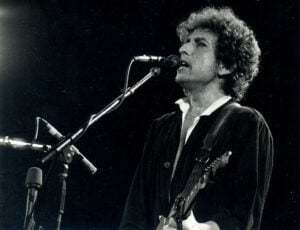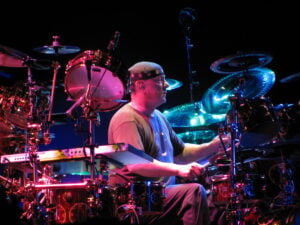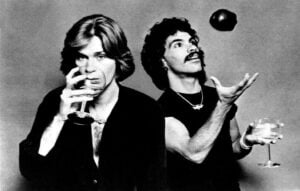10 Incidents That Made Band Members Finally Quit

ARLINGTON, TEXAS - MAY 12: Sting performs in concert during day three of KAABOO Texas at AT&T Stadium on May 12, 2019 in Arlington, Texas. (Photo by Gary Miller/Getty Images)
The rock and roll scene is notorious for intense rivalries, public disputes, and the breakdown of long-standing partnerships. When egos clash, friendships and creative collaborations can crumble, leading to unforgettable band breakups. Here are ten notable instances when band members decided to call it quits.
Noel Gallagher
Noel Gallagher’s departure from Oasis stemmed from his rocky relationship with his brother, Liam Gallagher. In 2009, Noel announced on the band’s official website, “With some sadness and great regret, I tell you that I am leaving Oasis.” The final straw came during a Paris music festival when a heated argument with Liam led Noel to cancel their performance, marking the end of his time with the band.

Phil Everly
Phil Everly and his brother Don, known as The Everly Brothers, were iconic figures in the 50s and early 60s, touring with legends like Chuck Berry and Buddy Holly. However, as the British Invasion gained momentum in 1964, their music began to fade from the spotlight, leading to their split in 1973. Years of performing together took a toll on their relationship, and they went a decade without contact, except at their father’s funeral.
Lita Ford
The Runaways, featuring Joan Jett, Lita Ford, Cherie Currie, Sandy West, and Jackie Fox, made a significant impact on rock music despite their brief career from 1975 to 1979. Known for their rebellious attitude and groundbreaking presence as an all-female band, they faced heavy criticism from the American press. Internal conflicts also plagued the group, particularly disagreements over their musical direction, with Jett leaning towards punk and Ford towards heavy metal. The band ultimately disbanded, leaving behind a legacy that women could indeed rock.

Glen Matlock
Glen Matlock was a founding member of the Sex Pistols and played on their infamous single “Anarchy in the UK.” However, creative differences, particularly over the controversial lyrics of “God Save The Queen,” led to his departure. Johnny Rotten claimed Matlock couldn’t handle the provocative lyrics, while Matlock himself was “sick of all the bullshit.” He was soon replaced by Sid Vicious, who became an icon of punk.
Sting
The Police, consisting of Sting, Andy Summers, and Stewart Copeland, were among the most influential bands of the late 70s and early 80s, blending punk and reggae. However, Sting’s decision to pursue a solo career led to the band’s breakup in 1984. The trio’s relationship was strained, with Sting stating they had little in common. Despite this, all members continued to have successful careers, with Sting becoming a renowned solo artist and others working in the film industry.

Zack de la Rocha
Rage Against The Machine, known for their politically charged music, disbanded in 2000 after four studio albums. Guitarist Tom Morello revealed that internal disagreements, particularly with frontman Zack de la Rocha, prevented the band from continuing. Despite reuniting for live shows between 2007 and 2011, the group’s creative differences remained unresolved, halting further recordings.
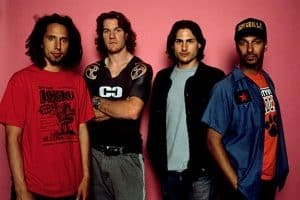
Tom DeLonge
In 2015, Tom DeLonge left Blink-182 to focus on his passion for investigating UFOs and extraterrestrial life. His departure was abrupt, communicated to bandmates Travis Barker and Mark Hoppus via email as they were preparing to record a new album. DeLonge’s exit led to the band recruiting Matt Skiba, who contributed to their 2016 album California.
Randy Meisner
Randy Meisner’s departure from The Eagles was sparked by his refusal to perform his hit song “Take It to the Limit” during a tour following the release of their Hotel California album. Meisner, tired of singing the song, clashed with Glenn Frey, who insisted on its performance for fans. The conflict escalated to the point where police had to intervene, leading to Meisner’s exit and replacement by Timothy B. Schmit.

Jeremy Spencer
Fleetwood Mac has seen numerous lineup changes, including the mysterious departure of guitarist Jeremy Spencer in 1971. While on tour, Spencer vanished without a word, later discovered to have joined a religious sect. His unexpected exit was one of many turbulent events in the band’s history, which has seen its members face personal struggles and dramatic changes.
Brian ‘Head’ Welch
Korn guitarist Brian “Head” Welch left the band in 2005 after embracing Christianity and becoming a born-again Christian. He likened his newfound religious fervor to his previous addiction to drugs, describing it as an obsession. Welch left Korn to focus on his faith and sobriety, even getting baptized in the Jordan River. He returned to the band in 2013, balancing his spiritual beliefs with his music career.





